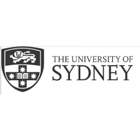- Duyurular ve Makaleler
- Find usIDP AustraliaIDP BahrainIDP BangladeshIDP CambodiaIDP CanadaIDP ChinaIDP EgyptIDP GhanaIDP Hong KongIDP IndiaIDP IndonesiaIDP IranIDP JordanIDP KenyaIDP KoreaIDP KuwaitIDP LebanonIDP MalaysiaIDP MauritiusIDP Middle EastIDP NepalIDP New ZealandIDP NigeriaIDP OmanIDP PakistanIDP PhilippinesIDP Saudi ArabiaIDP SingaporeIDP Sri LankaIDP Taiwan, ChinaIDP ThailandIDP TurkeyIDP UAEIDP VietnamIDP Corporate
- Social
- Türkçe
- Where we operate
- Courses
- Scholarships
- IELTS
- About IDP
- Öğrenci Servisleri
- Duyurular ve Makaleler
- Find us
- Find us
- En yakın IDP ofislerini bulun
- IDP Australia
- IDP Bahrain
- IDP Bangladesh
- IDP Cambodia
- IDP Canada
- IDP China
- IDP Egypt
- IDP Ghana
- IDP Hong Kong
- IDP India
- IDP Indonesia
- IDP Iran
- IDP Jordan
- IDP Kenya
- IDP Korea
- IDP Kuwait
- IDP Lebanon
- IDP Malaysia
- IDP Mauritius
- IDP Middle East
- IDP Nepal
- IDP New Zealand
- IDP Nigeria
- IDP Oman
- IDP Pakistan
- IDP Philippines
- IDP Saudi Arabia
- IDP Singapore
- IDP Sri Lanka
- IDP Taiwan, China
- IDP Thailand
- IDP Turkey
- IDP UAE
- IDP Vietnam
- IDP Corporate
- Social
- Dil Değiştirici
- IDP Education /
- Kolejler ve Üniversiteler /
- Australia /
- The University Of Sydney /
- Bachelor of Medical Science...


Location
Australia
Yeterlilik
Bachelor Degree with Honours
Ücretler
AUD58000
(2025)
Süre
1 Year(s)
Gelecek alımlar
17 February 2025
Giriş Puanı
6.5
IELTSCOURSE_INFO
The study of anatomy and histology is organised into four disciplines: topographical anatomy, neuroanatomy, histology and embryology. These disciplines consider cell structure and the basic tissues of the mammalian body, musculoskeletal anatomy, and the anatomy of the brain. Taking an honours year or graduate diploma in anatomy and histology will provide you with the opportunity to complete original research on a project supervised by a member of staff who is an expert in your specialist area. There are a range of projects on offer, in areas such as animal development, muscle research, structural cell biology, vision and cognition, reproduction, pain research, human molecular genetics and more. During your honours year, you will have access to research facilities and resources including a molecular biology facility, electron microscopes, advanced imaging facilities and laser capture microdissection equipment. To qualify for admission to honours or the graduate diploma, you must achieve suitable results in senior anatomy and histology or neuroscience.
- Burslar Tüm bursları görüntüleyin
- Stajyerlik
Bölüm ücretleri gösterge niteliğindedir ve rehber olarak kullanılmalıdır. doğru fiyat bilgisi almak için.
Duration: 1 Year(s)
Fees: AUD58000
| Alım | Location |
|---|---|
| Semester 1 (February), 2026 | Camperdown |
| Semester 2 (July), 2026 | Camperdown |
| Semester 1 (February), 2025 | Camperdown |
| Semester 2 (August), 2025 | Camperdown |
Kabul şartları The University Of Sydney
IELTS - A minimum result of 6.5 overall and a minimum result of 6.0 in each band
TOEFL IBT - A minimum result of 85 overall including a minimum result of 17 in Reading, Listening and Speaking and 19 in Writing
Son Başvuru Tarihi
Son başvuru tarihi mevcut değil Bir IDP danışmanıyla görüşün daha detaylı bilgi için
Further information
If you aren't eligible for the above entry requirements, you might ant to explore pathway options at The University Of Sydney. If you want to find out more, speak to our counsellors.
THE Dünya Sıralaması
61st / 1250
THE Dünya SıralamasıÖğrencilerimiz ne düşünüyor?
Bu kurum için hünüz bir yorum yapılmadı.
Sizin için öneriliyor
- Lisans
- Australia
- Finansman türü: Fee waiver/discount
- Lisans
- Australia
- Finansman türü: Fee waiver/discount
- Lisans
- Australia
- Finansman türü: Fee waiver/discount
- Lisans
- Australia
- Finansman türü: Fee waiver/discount
- Lisans
- Australia
- Finansman türü: Fee waiver/discount
- Lisans
- Australia
- Finansman türü: Fee waiver/discount
- Lisans
- Australia
- Finansman türü: Fee waiver/discount
- Lisans
- Australia
- Finansman türü: Fee waiver/discount
Your action plan
Adım 1
Shortlist your courses
Choose the best three courses you’re most likely to pursue.
Adım 2
Check your eligibility
Get an instant in-principle offer for courses with the IDP FastLane tag.
Adım 3
Apply through IDP Live
Fill out the form once and use it to apply to multiple courses.
IDP FastLane nasıl kullanılır?
FastLane ile alacağınız 'Ön Teklif' sayesinde istediğiniz okula kabul edilip edilmeyeceğinizi dakikalar içinde öğreneceksiniz!
Bir kurum ve bölüm seçin
Akademik profilinizi oluşturun
Ön Teklif' için başvurunuzu gönderin
Seçtiğiniz kurum(lar) size dakikalar içinde bir yanıt gönderecek!
Uzman bir danışmanla başvurmaya hazır olun




